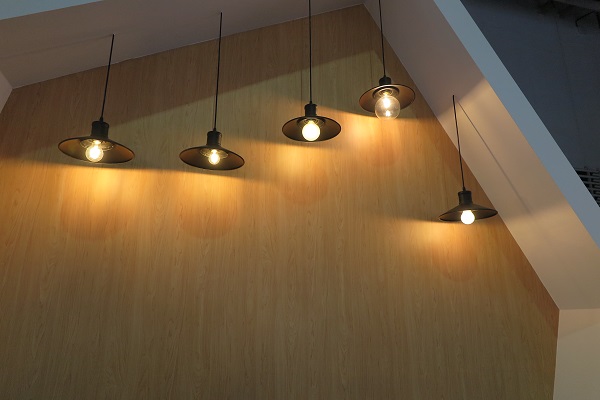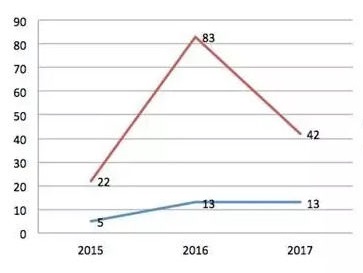The U.S. International Trade Commission (USITC) has voted to institute an investigation of certain LED lighting devices, LED power supplies, and components thereof. The products at issue in the investigation are LED lighting devices (e.g., luminaires and bulbs that use LEDs as a light source), and components thereof, such as LED power supplies, reflectors, and optics.
The investigation is based on a complaint filed by Philips Lighting North America Corp. of Somerset, NJ, and Philips Lighting Holding B.V. of Eindhoven, Netherlands, on September 21, 2017. The complaint alleges violations of section 337 of the Tariff Act of 1930 in the importation into the United States and sale of certain LED lighting devices, LED power supplies, and components thereof that infringe patents asserted by the complainants. The complainants request that the USITC issue a limited exclusion order, and cease and desist orders.
 |
|
(Image: LEDinside) |
The USITC has identified the following as respondents in this investigation:
-
Feit Electric Company, Inc., of Pico Rivera, CA;
-
Feit Electric Company, Inc. (China), of Xiamen, China;
-
Lowe’s Companies, Inc., of Mooresville, NC;
-
L G Sourcing, Inc., of North Wilkesboro, NC;
-
MSi Lighting, Inc., of Boca Raton, FL;
-
Satco Products, Inc., of Brentwood, NY;
-
Topaz Lighting Corp. of Holtsville, NY;
-
Wangs Alliance Corporation d/b/a WAC Lighting Co. of Port Washington, NY; and
-
WAC Lighting (Shanghai) Co. Ltd. of Shanghai, China.
By instituting this investigation (337-TA-1081), the USITC has not yet made any decision on the merits of the case. The USITC’s Chief Administrative Law Judge will assign the case to one of the USITC’s administrative law judges (ALJ), who will schedule and hold an evidentiary hearing. The ALJ will make an initial determination as to whether there is a violation of section 337; that initial determination is subject to review by the Commission.
The USITC will make a final determination in the investigation at the earliest practicable time. Within 45 days after institution of the investigation, the USITC will set a target date for completing the investigation. USITC remedial orders in section 337 cases are effective when issued and become final 60 days after issuance unless disapproved for policy reasons by the U.S. Trade Representative within that 60-day period.
Section 337 is used to investigate the infringement of certain statutory intellectual property rights and other forms of unfair competition in import trade to be unlawful practices. Once a imported product is convicted of patent infringement, the owner company will be prohibited to import and distribute it, and even forced to exit the US market.
In particular, more and more Chinese companies are accused of infringement and under investigation. Over the past three years, a number of them, especially electronics and manufacturing companies with a certain level of sophisticated technology, have been named in the list. Cases against Chinese enterprises mostly take place in January, May, and June.
Judging by the chart below, 83 Section 337 investigations involving Chinese firms were opened in 1H16, 22 in 1H15, and 42 in 1H17. The blue line shows how many Chinese firms were targets of investigation during the period.
The increase of Section 337 investigations reflects the fact that more and more Chinese enterprises enter the US market with more innovative, higher margin products, posing incremental threats against local businesses. The number used to remain low in the past when those Chinese companies trading in America owned a relatively small proportion of the overall market share and supplied comparably cheap necessities.
It also reminds Chinese businesses of the importance of intellectual property, which is one of the key elements markets like North America, Europe, and Japan emphasize.












